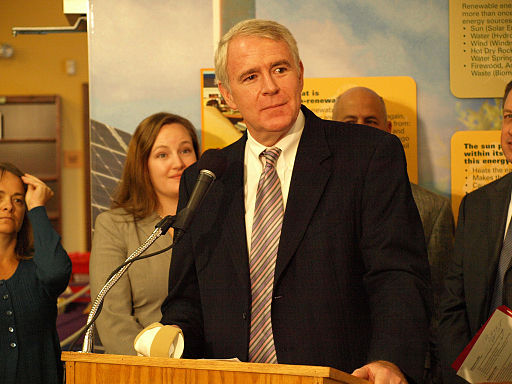In 2011, Wisconsin’s Milwaukee County reduced pension benefits for nurses by cutting the pension multiplier from 2 to 1.6.
In a 5-2 decision on Friday, the Wisconsin Supreme Court upheld the legality of the County’s decision to reduce the multiplier.
From the Milwaukee Journal-Sentinel:
The Wisconsin Supreme Court on Friday upheld Milwaukee County’s 2011 move to reduce pension benefits for nurses, which had been struck down by lower courts.
The high court’s ruling preserves millions of dollars in planned future savings by the county.
In a 5-2 decision, the court overturned a trial judge and the Court of Appeals, both of which had sided with Suzanne Stoker and her union, who claimed that enhanced pension benefits granted by the County Board in 2000 was a vested property right that even collective bargaining couldn’t undo.
“We conclude that the Legislature preserved Stoker’s rights and benefits already accrued but also gave Milwaukee County home rule authority with the flexibility to enact such prospective only changes,” Justice Annette Ziegler wrote for the majority.
In a dissent joined by Chief Justice Shirley Abrahamson, Justice Ann Bradley wrote, “It is only by repeatedly ignoring the language of the governing session laws that the majority is able to conclude that the county may reduce the pension multiplier, thereby dealing a blow to the rights of the employees.”
At issue was the county’s move to cut the pension multiplier — a key factor in determining pension payments — from 2.0 to 1.6 for pension credit earned starting in 2012. That amounted to a gradual 20% reduction in pensions.
Two lower courts had sided with unions on the issue and claimed the County could not reduce the pension multiplier because doing so amounted to the County taking away the pensioners’ property. The rationale of the lower court rulings:
Milwaukee County Circuit Judge William Pocan ruled in 2012 that the county nurses had an unconditional property right to their pension benefits. He cited the 1945 state law establishing pension rights for Milwaukee County employees, which says each worker “shall have a vested right to such annuities and other benefits and they shall not be diminished or impaired by subsequent legislation or by any other means without consent.”
The county and its Pension Board argued that the multiplier reduction didn’t violate that law because it applied to future pension service credit only and because the nurses’ union had approved the change. Pocan said, however, the benefit reduction could be done only with consent of individual employees.
The Court of Appeals affirmed Pocan in November 2013.
The Supreme Court opinion can be read here.
Photo credit: “Flag map of Wisconsin” by LGBT_flag_map_of_Wisconsin.svg: This file was derived from:LGBT_flag_map_of_Wisconsin.svgFlag_of_Wisconsin.svg. Licensed under Public Domain via Wikimedia Commons

